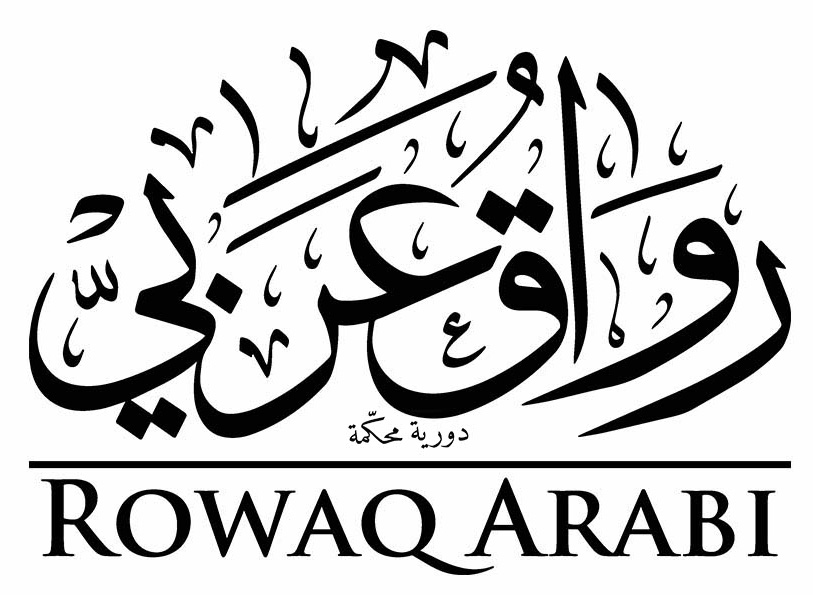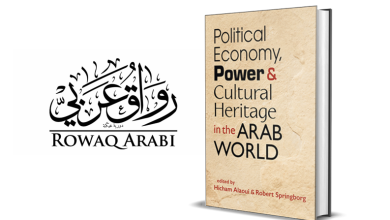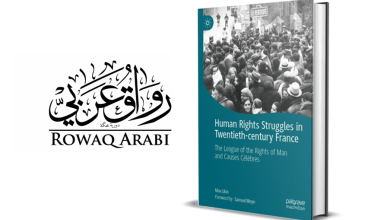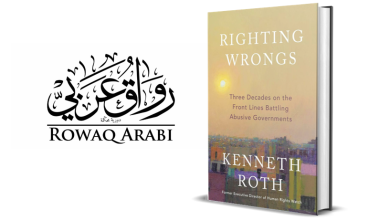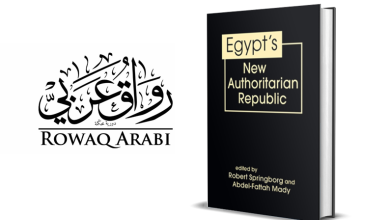Book Review: ‘Egyptians’ Wisdom’ by Mohamed Sayed Said
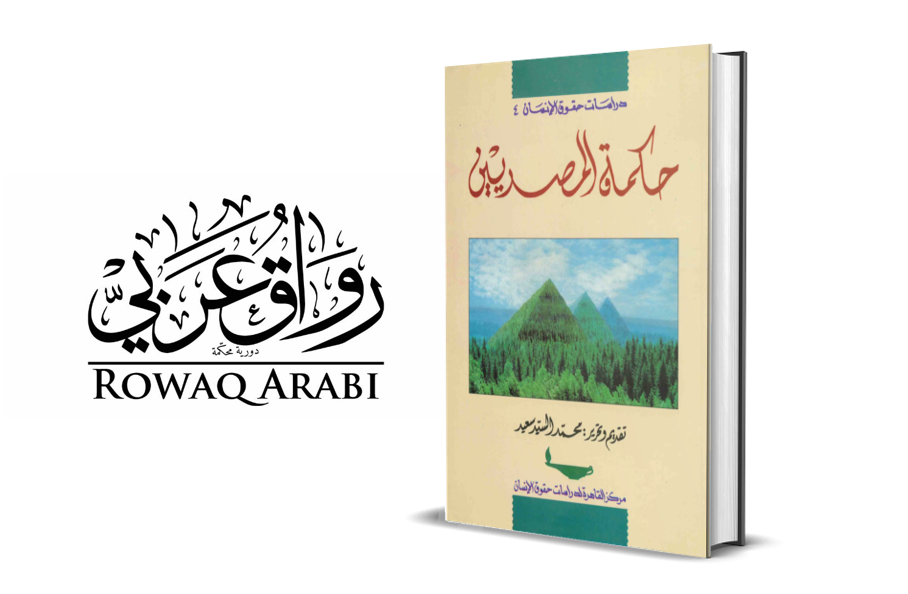
Citation: Romdhani, Messaoud (2024) ‘Book Review: ‘Egyptians’ Wisdom’ by Mohamed Sayed Said’, Rowaq Arabi 29 (2), pp. 17-21, DOI: 10.53833/QTCO8994.
Those of our generation who are more senior and interested in public affairs in the Arab region are concerned with how to motivate young people to reread their national history. This should be done without sanctifications that seek to reproduce it, or disparagement that attributes current political and social misery to a past perceived as hollow of culture and civilisation, replete with disasters, tragedies, and injustices. In other words, how do we encourage today’s youth, who are themselves the makers of the future, to read the history of their countries objectively and to feel proud of past achievements, while being aware of the obstacles and failures that hindered progress and development and drawing lessons from both the successes and setbacks?
The book ‘The Egyptian’s Wisdom’[1] – with chapter contributions by a number of prominent Egyptian authors,[2] was introduced and edited by the late Mohamed Sayed Said and published by the Cairo Institute for Human Rights Studies twenty-five years ago (1999). It targets the younger generation with the aim of helping them better navigate Egypt’s history and learn from its lessons. The goal is for them to eventually formulate a civilisational project for national salvation and contribute to the restoration of ‘freedom and historical leadership’ in the country. This ought to be done without the distortions of colonial claims, political ideologies or religious assertions that have historically influenced knowledge production.
The book argues that a thorough study of Egypt’s historical and civilisational trajectory reveals that the country’s future hinges on three integrated and inseparable paths: embracing all elements of the Nahda (renaissance), including cultural, technological, and scientific dimensions; avoiding sectarian and religious strife that has caused deadly disturbances; and ensuring that Egyptians enjoy all aspects of citizenship, including political and civil rights. According to the book, this is the way to protect Egypt ‘against the ravages of time and the tyranny of despots from within and without’ and to eliminate despair, so that ‘hope can return with brilliance and splendour’.
Through studying Egypt’s history, ambitious youth who aspire to build their future must recognise the sources of strength to build upon and the weaknesses to overcome. Egypt possesses a civilisational and cultural history that is unique, granting Egyptians distinctive moral features in their interactions with one another and with others, the most important of which are tolerance, benevolence, and kindness. Egyptians have demonstrated architectural, artistic, and cultural creativity, reflected in the construction of the pyramids, the development of writing, and the early adoption of intellectual and enlightenment principles. These expressions of human innovation have continued to emerge periodically in all areas of Egyptian life, despite attempts by tyranny and colonialism to stifle and domesticate them at various times.
The possession of these moral, civilisational, and cultural elements nearly paved the way for a qualitative leap in Egypt’s development, positioning it among advanced nations. There are weaknesses, however, that seem to be ingrained in the lives of Egyptians, such as the lack of balance between the public and private spheres, or the tendency to focus on social aspects in their minutest details while neglecting the broader political realm, particularly the contractual relationship that should exist between citizen and ruling authority. Additionally, Egypt has experienced periods of weakness and decline when religion dominated the state and religious institutions controlled public relations. This resulted in authoritarian rule, a shrinking space for tolerance, and the emergence of religious extremism.
These imbalances are what allowed colonial powers to occupy Egypt during various periods of its long history. Neglecting public affairs enabled authoritarian rulers to exploit the people’s kindness and tolerance and impose their dominance. Moreover, these severe religious upheavals sometimes led to religious persecution and sectarian conflicts, threatening the ‘Egyptian civilisational fabric’ and harming the stability and harmony among the components of society.
What should the youth of Egypt understand about their country’s history to be able to effectively use it as a tool for building a future based on freedom, democracy, and justice? First, they must recognise that Egypt is a unique nation with its own civilisation and history and that the wisdom of the ancient Egyptians combined ethics and reason ‘in an inseparable bond’. They must also understand that the fundamental function of the state should be grounded in the pursuit of justice and that misuse of power leads to a ‘disruption in the order of the universe and society’.
Pride in national belonging contributes to self-confidence; it deepens the sense of citizenship and motivates political and civil action. The book does not hesitate to remind readers of the components of Egyptian society throughout long historical periods. This population has shown remarkable resilience in the face of various regimes and successive invasions, maintaining its structure, framework, and civilisational components even during periods of despotism and colonial domination. After all, ‘Egyptian society achieves continuity through its civil social structure, not through the ever-changing official political framework’.[3] Similarly, religious belief has remained personal and is not a defining aspect of Egyptian societal identity, where one is always Egyptian before any religious, ethnic, or regional affiliation.[4]
Although religion has played an important role in Egyptian life and culture, it was not limited to rituals or a mere ‘culture of death’. Instead, Egyptians infused it with joy and happiness. Despite the succession of religious beliefs in Egypt, Egyptians have always considered religion a part of public life, blending reverence with joy and piety with ethics. Here, ethics refer to positive worldly values, centred around mercy, justice, and the rejection of injustice and cruelty in dealing with others.
The Egyptian people love creativity, writing, art, and music as much as they love life. They have placed writing at the pinnacle of professions and trades, and elevated drawing and images to the highest ranks of art as a recreation of life. They have appreciated art for its own sake, believing in the aesthetic values conveyed by artistic expressions before the ‘direct benefit of any work’. [5] Contemporary music has allowed for a more magnificent and beautiful dimension, especially under the influence of four unique artistic icons. Sayed Darwish delivered art from the chambers of princes and the palaces of the wealthy to the common people; Mohamed Abdel Wahab blended Eastern heritage with contemporary melodies; Umm Kulthum embodied the creations of both Darwish and Abdel Wahab; and finally, Abdel Halim Hafez, who grew up with the 1952 Revolution, represented the features of nationalism embraced by that generation.
This Egyptian civilisational and cultural history is grounded in two main elements. The Nile River has shaped Egyptian life, influencing people’s emotions, stories, folklore, and arts, and has always been a ‘unique geographical phenomenon in the lives of Egyptians and one of the most important factors in their civilisational formation’.[6] Islamic conquest marked a significant turning point in Egyptian history. This Islamic religion would not have had such an impact without partially embracing modernity’s three foundational values—freedom, renaissance, and enlightenment — established by the fathers of the Nahda (renaissance) project; namely Mohamed Abduh, Qasim Amin, Fathi Zaghloul, Ahmed Lutfi el-Sayed, and finally Taha Hussein.
Modernisation is not an easy task; it often constitutes ‘severe suffering’ and overcoming absolute rule that stifles society’s culture and distorts it. Freedom is the path to creativity and a crucial condition for modernisation and societal progress. Egyptian contemporary life has been linked to three main elements. The first element is drawing from ancient heritage and adapting what can serve contemporary life. Second is engaging with the modern mindset in advanced societies, inviting that which fits the people’s temperament and enables growth, productivity, and development. Finally, interacting and harmonising with the distinctive characteristics that sculpt the Egyptian persona, encompassing emotions, inclinations, thoughts, and opinions.
Egypt continues to struggle towards ‘completing its modernisation’, despite entering modernity early. Science and creative scientific education remain the cornerstone of its Nahda (renaissance). Since the 1940s, Egypt has recognised the necessity of educational reform, establishing committees to update its programmes. The July Revolution (1952) made education compulsory and free at all levels. However, while the construction of schools, institutes, and universities contributed to widespread education, quality continued to deteriorate and failed to keep up with quantity. The ‘primary mission of higher education remained the production of state employees’, a mission that persisted even after the government halted hiring.[7]
Modernisation remained limited and marginalised due to the absence of democracy, and ‘the lofty human yearning’ it represents. Democracy is not only a prerequisite for Egypt’s advancement but also an effective tool that fosters the creation of a nation with ‘diverse civilisations, numerous cultures, religions and social and political values and various intellectual currents, and schools of science and creativity’.[8]
The July Revolution attempted to carry through a developmental project incepted by the Egyptian nationalist movement. Yet, it monopolised power and stifled the growth of intellectual and political currents, denying them all paths to political participation. The harsh lesson Egypt must learn as it enters the twenty-first century is ‘not to allow a single current, no matter its authority, to claim infallibility and monopolise correctness outside the realm of human thought, which accepts both error and truth’.[9] This issue not only pertains to governance style and authority but also to social education, and the defence of intellectual diversity and pluralism both domestically and internationally.
The book, printed just one year before the twenty-first century, sees Egypt entering a crucial historical juncture filled with hope yet burdened by a legacy of significant challenges. Egypt has achieved some economic success in the latter half of the twentieth century while retaining its ancient cultural heritage. And although Egypt is not immune to ideological and political conflicts, these have not undermined the unity and cohesion of the nation, demonstrating that Egypt ‘is capable of uniting around a common cause in defending its principles, values, and interests’.[10]
Nevertheless, the greatest challenge remains that economic progress, cultural advancement, and political stability are all tied to ensuring that all Egyptians enjoy basic human rights and full citizenship rights. This includes freedom of conscience, belief, expression, assembly, and political participation, as well as the formulation of national legislation that ‘surrounds human rights with a shield of respect and reverence, making the violation of these rights as much of an ethical crime as a legal one’.[11]
Mohamed Sayed Said’s book is aimed at inspiring youth through knowledge of their country’s history and can be beneficial to other peoples of the region, especially those who have had a narrow and selective reading of history. The main point is that Egypt was a significant civilisation and the source of a considerable amount of legislation that inspired the world. However, everyone, especially the youth, should arrive at three fundamental realisations. Firstly, that history is a reservoir of lessons, a process that cannot be selectively recalled by evoking ‘a period or a situation’. Secondly, that formulating a future project requires openness to other civilisations and learning from their contributions, as exemplified by the pioneers of the Nahda. Finally, internal cohesion based on freedom and citizenship is the linchpin of security and the key to progress. Periods of prosperity in Egypt were linked to its internal dynamics ‘that positively influenced the country’. However, Egypt has experienced ‘historical periods of stagnation and collapse when its internal dynamics were disrupted by monopolisation, repression, or suppression of its multifaceted and rich historical and religious dimensions’.[12] These ideas were no less relevant when the book was first published than they are today, after a quarter of a century.
This article is originally written in Arabic for Rowaq Arabi.
[2] Ahmed Abu Zeid, Ahmed Zayer, Ishak Ebeid, Hamed Abdel Rahim, Hassan Talab, Hilmy Salem, Raouf Abbas, Abdel Moneim Taleima and Qassim Abduh Qassim.
[3] Said, Mohamed Sayed (1990) The Egyptian’s Wisdom, p. 71.
[4] Ibid, p. 77.
[5] Ibid, p. 118.
[6] Ibid, p. 172.
[7] Ibid, p. 172.
[8] Ibid, p. 193.
[9] Ibid, p. 195.
[10] Ibid, p. 262.
[11] Ibid, p. 269.
[12] Ibid, p. 196.
Read this post in: العربية
